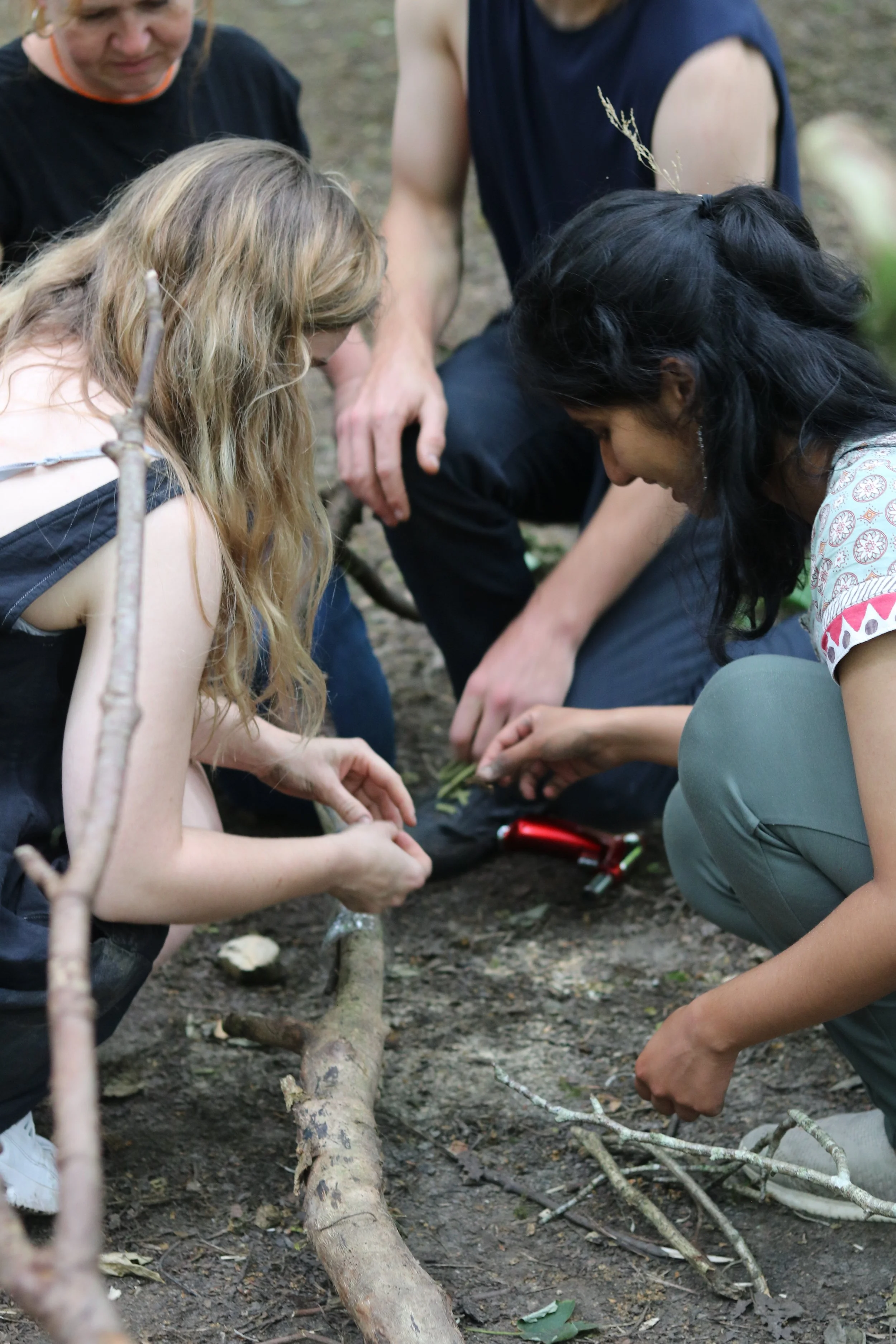WORKSHOPS & ENGAGEMENT
These workshops, developed during my MFA at Bath Spa University, formed an integral part of my research into sustainable, material-led practice. Each one explored how pedagogy can be rooted in ecology - learning through direct engagement with place, process, and material. Whether working with foraged clay in the landscape, exploring the sensory knowledge of plants, or inviting participants to play with soil, the sessions prioritised embodied learning, tactile thinking, and collaborative exchange. They offered inclusive, accessible environments for experimentation, where participants could engage critically and creatively with their surroundings. These workshops were not just teaching moments but sites of shared discovery - where knowledge emerged from the ground up.
Bath Spa University, Masters Research into exploring Site, Ecology, and Collective Making Through Workshops
Native Clay Exploration
Found Outdoors
In this outdoor workshop, I guided participants through the process of locating, collecting, and testing native clays from the landscape. The session included walking, talking, and tactile exploration, combining fieldwork with experimental making. It encouraged an intuitive, reciprocal relationship with land and matter, aligned with my broader MFA research on sustainable and ethical material practices.
Dirt, Soil and Grime
Doing Together Symposium, Bath Spa University
This hands-on workshop was rooted in exploring material realities often overlooked—earth, grit, and natural residue. Participants worked with foraged soils and organic matter to make inks, pigments, and clay-based materials. The session was both messy and methodical, challenging ideas of what constitutes a 'finished' or 'clean' artwork while connecting process with place.
What Do Plants Know?
Bath Spa Foundation Course Workshop
This workshop invited Foundation students to consider plants not only as material but as collaborators. Participants explored drawing, mapping, and making with natural materials, while discussing what it means to ‘know’ through non-human lenses. The session encouraged slow looking, sensory learning, and speculative thinking, forming a gentle introduction to ideas of ecological empathy and material awareness.










